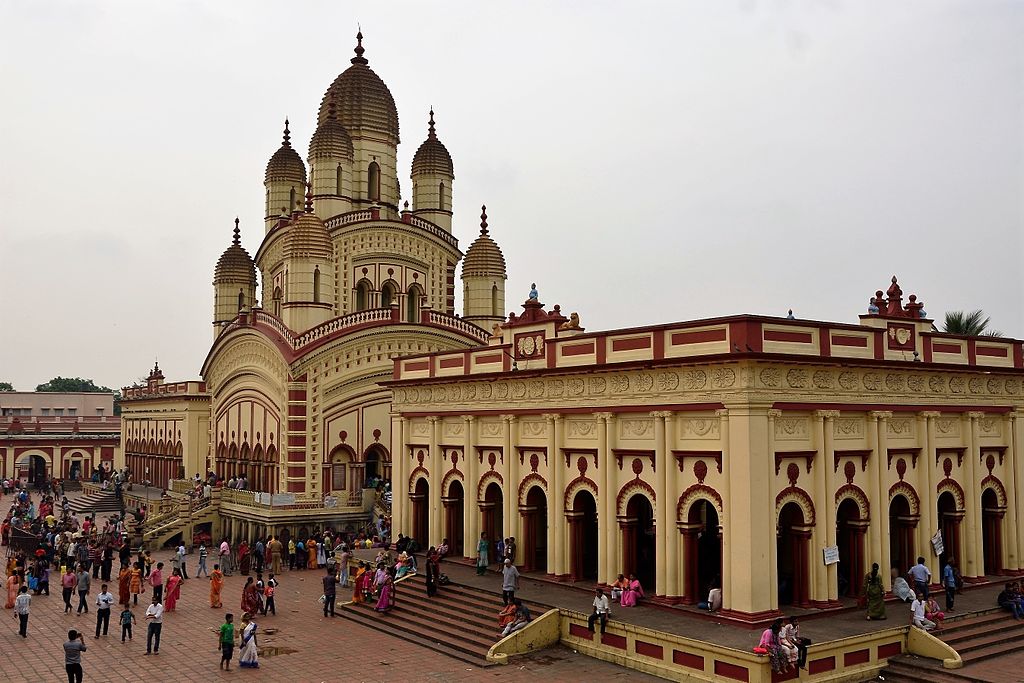Dakshineswar Bhavatarini Kali Temple- West Bengal

Address
Dakshineswar Bhavatarini Kali Temple Dakshineswar, Kolkata, West Bengal 700076
Deity
Shiva, Krishna Amman: Bhavatarini (Kali), Radha
Introduction
- Location: Dakshineswar, on the eastern bank of the Hooghly River, India.
- Established: 1855.
- Founder: Rani Rashmoni, a philanthropist and devotee of Kali.
- Presiding Deity: Bhavatarini (a form of Parashakti Adya Kali or Adishakti Kalika).
- Significance: Associated with 19th-century mystics Ramakrishna and Ma Sarada Devi.
- Temple Complex:
- Main Temple: Navaratna (nine-spired) temple.
- Other Structures: Courtyard with boundary rooms, twelve Shiva shrines, Radha-Krishna temple, bathing ghat, shrine for Rani Rashmoni.
- Nahabat: Chamber where Ramakrishna and Ma Sarada spent significant time.
Puranic Significance:
- Founding Legend:
- Vision: Rani Rashmoni had a divine vision instructing her to build a temple for Kali instead of making a pilgrimage to Kashi.
- Site Selection: Purchased a 30,000-acre plot in Dakshineswar from Englishman Jake Hastie.
- Construction: Temple built between 1847 and 1855 on land known as Saheban Bagicha; the site was an old Muslim burial ground considered suitable for Shakti worship.
- Inauguration: Idol of Goddess Kali installed on Snana Yatra day (31 May 1855). Ramkumar Chhattopadhyay was the initial priest, succeeded by his younger brother Ramakrishna and wife Sarada Devi.
- Legacy: Rani Rashmoni passed away in 1861, leaving her property in Dinajpur (Bangladesh) for the temple’s maintenance.
Special Features:
- Architecture:
- Style: Navaratna (nine-spired) Bengal architecture.
- Dimensions: Three-storied, 46 feet (14 m) square, and rises over 100 feet (30 m) high.
- Sanctum Sanctorum: Houses an idol of Kali (Bhavatarini) standing on Shiva’s chest, placed on a silver lotus throne.
- Shiva Temples: Twelve identical temples facing east, built on the riverfront in typical aat-chala Bengal style.
- Nearby Temples:
- Vishnu Temple/Radha Kanta Temple: Features a silver throne with idols of Krishna (21.5 inches) and Radha (16 inches).
Significance:
- Cultural Impact: The temple is a major pilgrimage site due to its association with Ramakrishna and Ma Sarada Devi, and its historical and architectural importance in Bengal’s religious landscape.
Century/Period/Age
19th century
Managed By
Archaeological Survey of India (ASI)
Nearest Bus Station
Dakshineswar
Nearest Railway Station
Kolkata station
Nearest Airport
Kolkata




